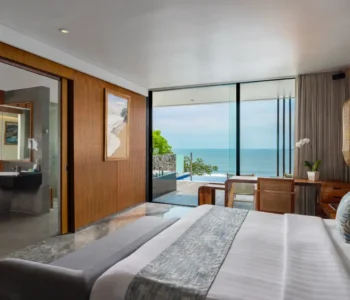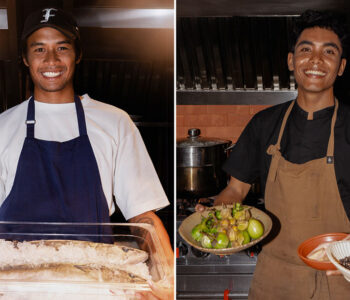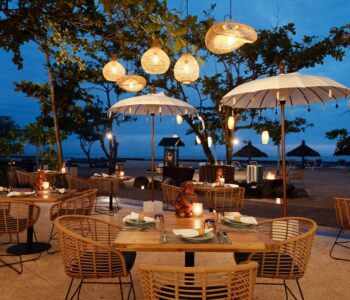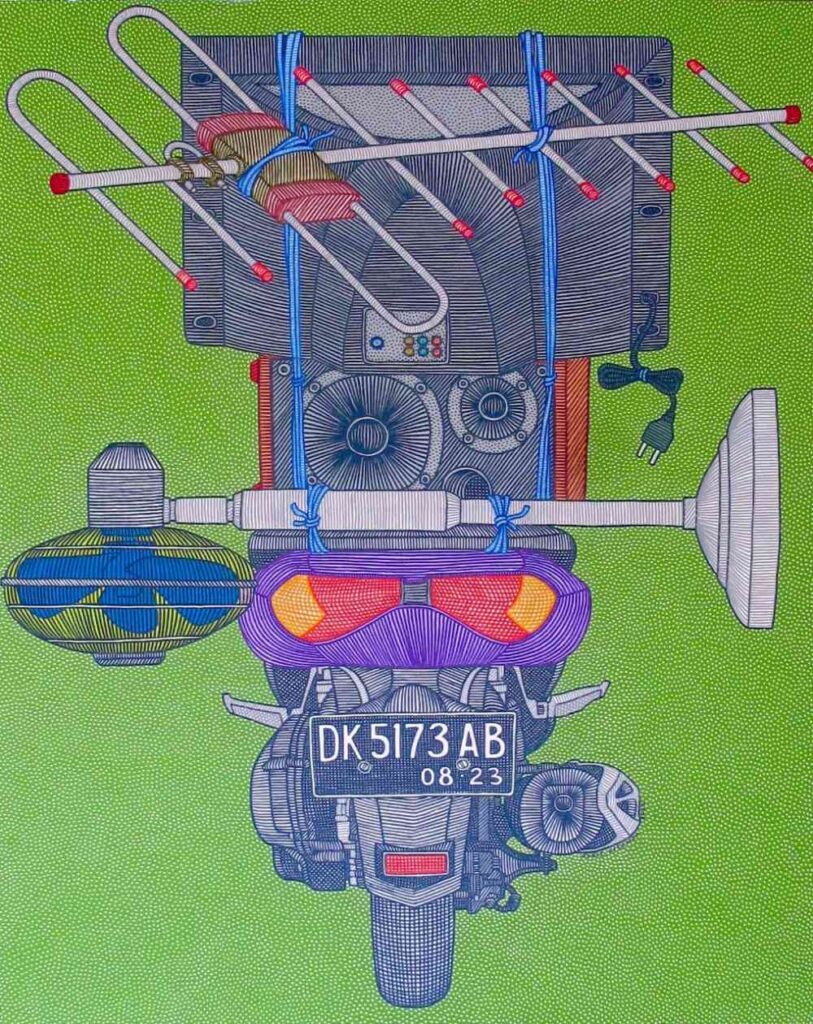
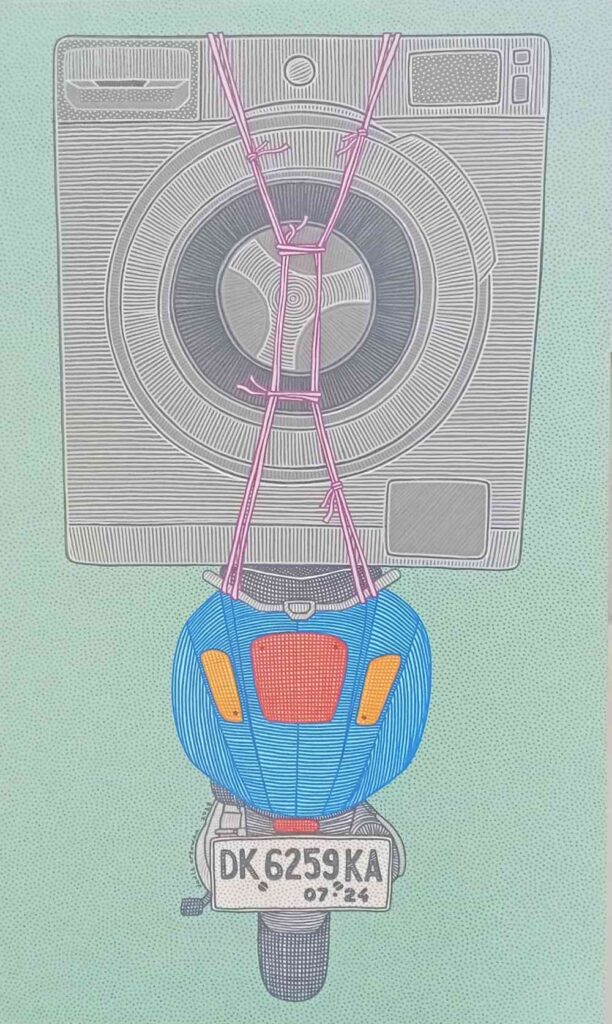
The avant-garde imagery of the Pop Art movement had a global impact and first emerged in the United Kingdom and the United States in the mid-1950s. Claes Oldenburg, a Swedish-born American Pop artist in 1961, penned a compelling manifesto, part of which reads, “I am for an art that is political-erotical-mystical, that does something other than sit on its ass in a museum. I am for an art that embroils itself with the everyday crap & still comes out on top.”
Dodit Artawan, a multi-talented Balinese painter, has excelled in the technical demands of hyper-realism and watercolour painting and is established as one of the most notable Pop artists in Bali. He first experimented with Pop art over a decade ago revealing his love for cartoons, emoticons, graffiti, and street art.
Artawan’s new Pop Art series, which began in 2018 and is called Line Rhythm Drawing using acrylic paint markers, is inspired by drawing, and the achievements of art superstars: the bright colours of David Hockney, Roy Lichtenstein’s static line and repetitive diagonals and dots, Van Gogh’s drawings, Jonas Wood’s flat colour and line, and the text and graphics from Edward Ruscha.
Rich in visual tension, Artawan’s line rhythm drawing dazzles with contrasting hyper-electric colours. The simplified, yet unusual composition structures are enhanced with compelling negative spaces. The pulsating lines and dot configurations make the works hypnotic and captivating. His images depict, for example, a cacophony of household consumer items lashed to the back of motorbikes, the rear end of large vehicles plastered with signage, packaging and advertising and everyday items such as plastic bags and LPG gas bottles.
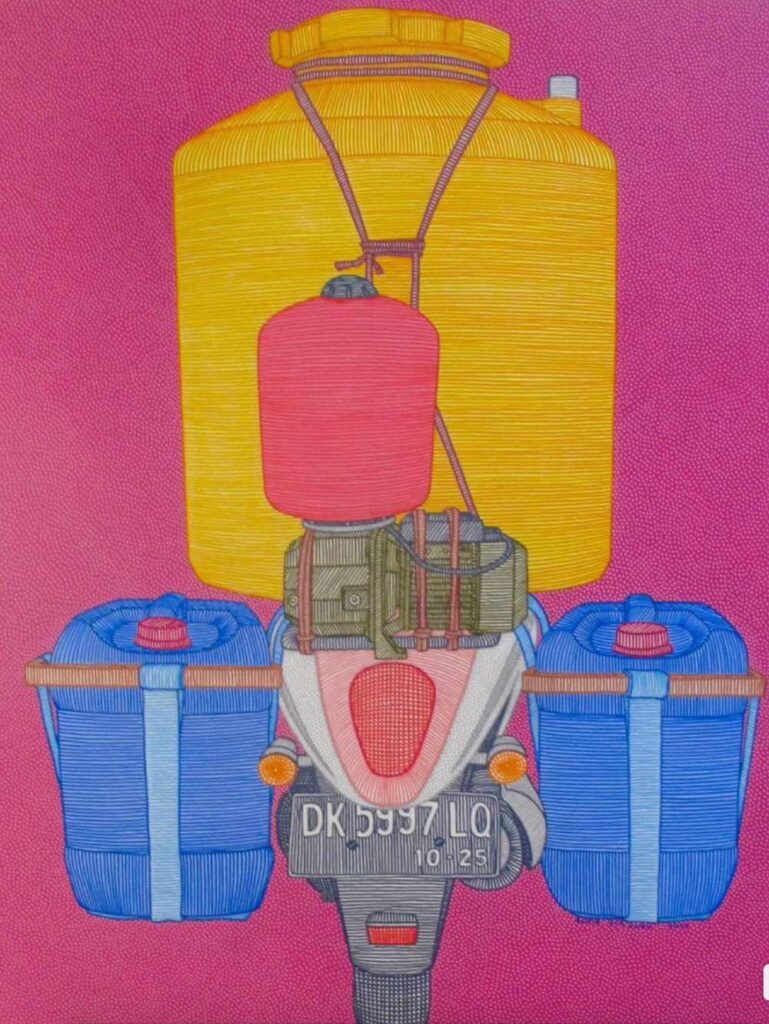
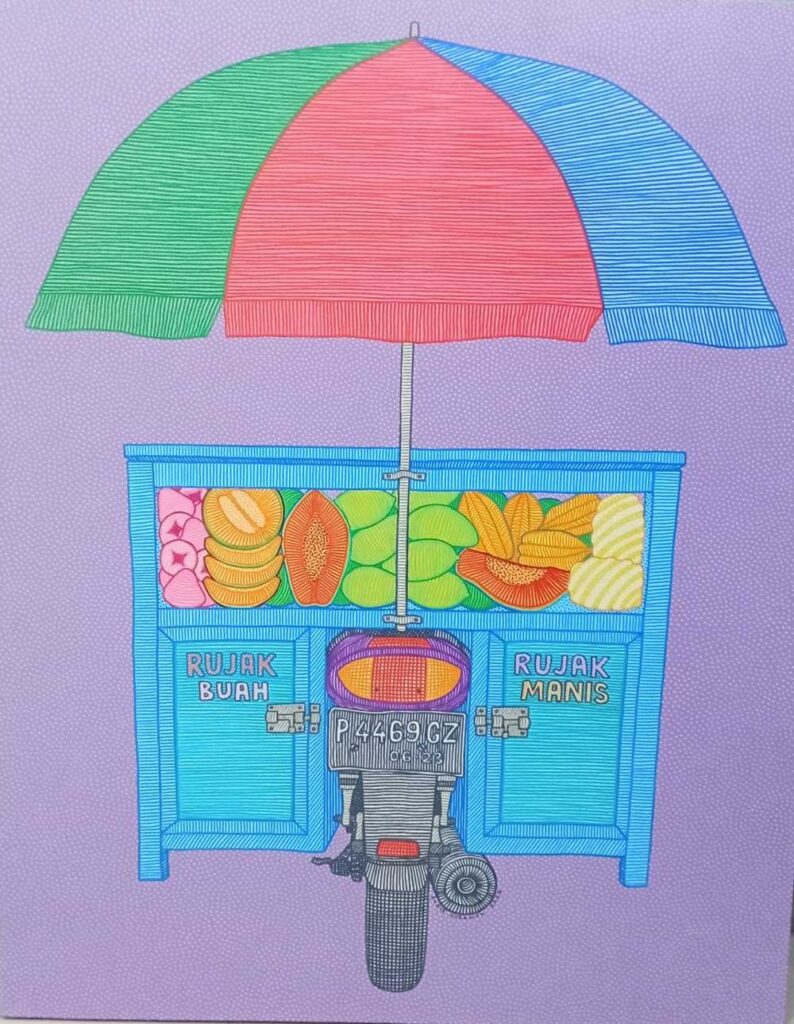
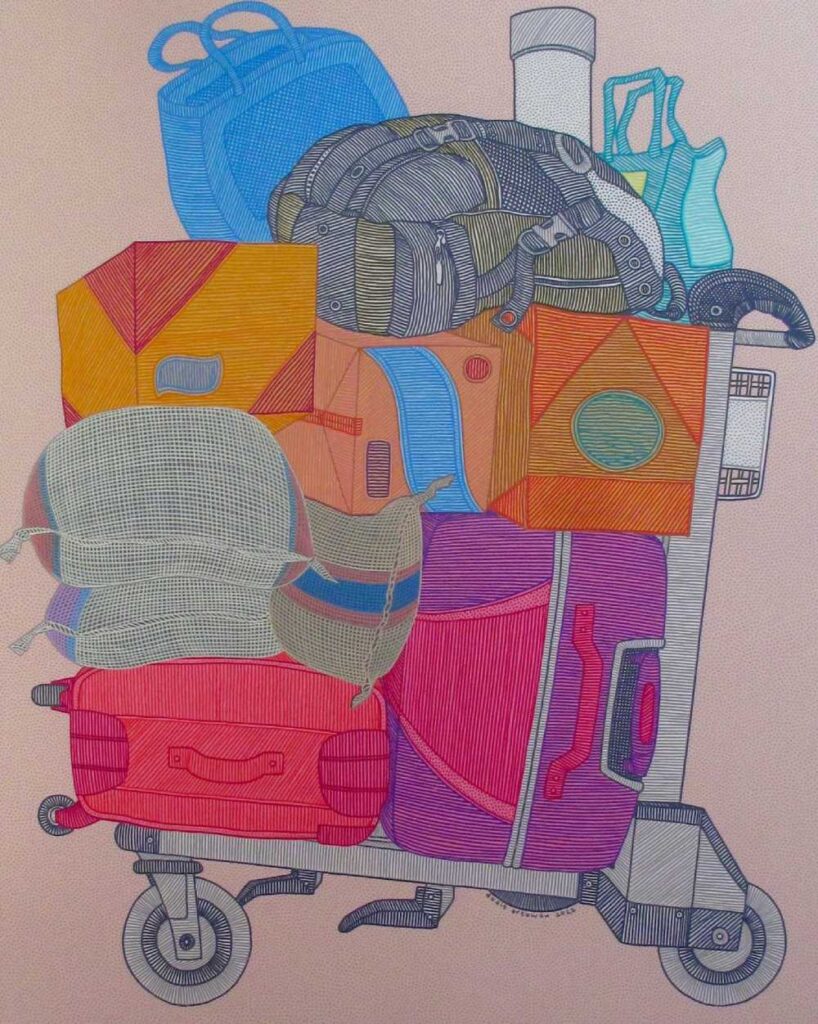
“Pop Art is youthful, naughty, sexy, famous, gimmicky and rebellious, and that’s what I find interesting,” Dodit Artawan told NOW! Bali Magazine. “I use ordinary, domestic objects to express and communicate social and environmental issues that are in my neighbourhood. I endeavour to make the subject matter look cheerful and frenetic, but not gloomy even though in reality a lot of it is depressing. There are elements of satire, sarcasm and irony.”
Pop art demands a critical eye for observation and the ability to transform the mundane and unexpected into invigorated icons of visual wow, complete with a message. The artist’s immediate neighbourhood is the source of his inspiration. “I criticise, yet at the same time celebrate as an individual who is part of this global culture. Consumerism and hedonism are so intoxicating, addictive and difficult to resist,” said the artist, born in Batubulan, Gianyar in 1978.
“I appropriate the lifestyle of contemporary society with a culture of consumerism that dominates and is difficult to avoid. My art is my commentary on the social effects of globalization and invasion of foreign culture that have been so readily embraced by society and thus displacing local Balinese culture.”
“From an aesthetic perspective, I am interested in consumer products, the packaging, design and colours. I like to see industrial products piled up in shops or on the side of the road, and plastic products with bright colours in grocery stores, mini marts, food stalls and retail shops.
Likewise, the phenomenon of how people carry overloaded goods on motorbikes or pick-up trucks we often encounter in traffic jams. It is unique and interesting in terms of composition, but also dangerous.”
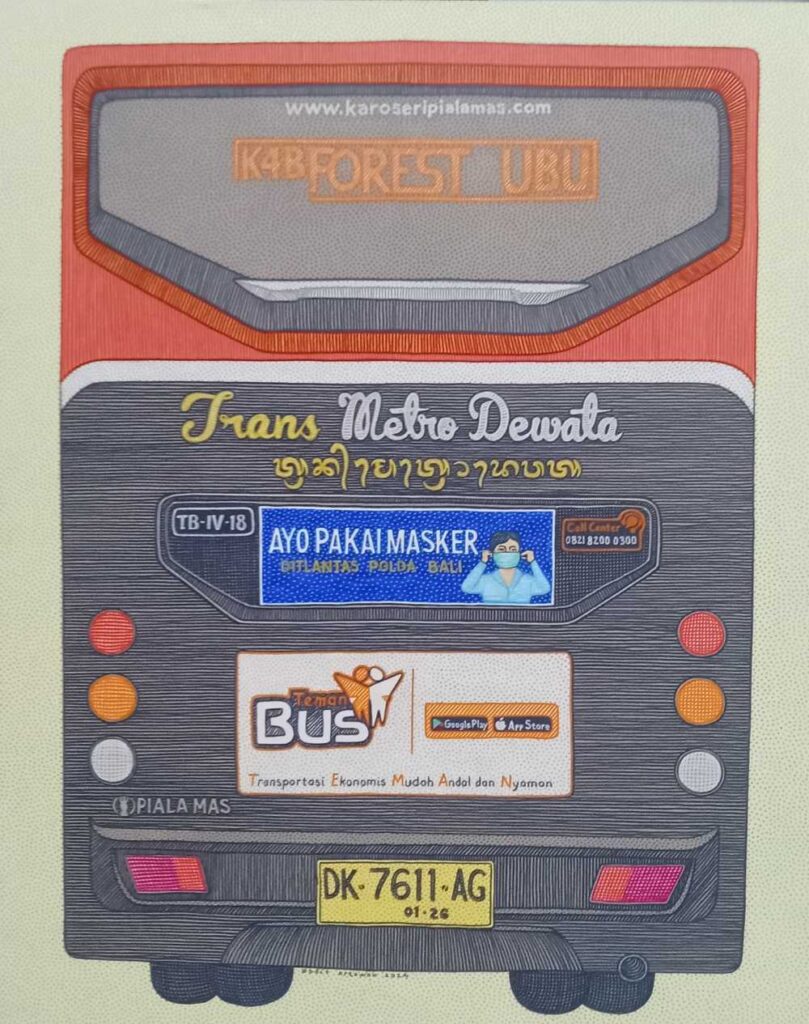
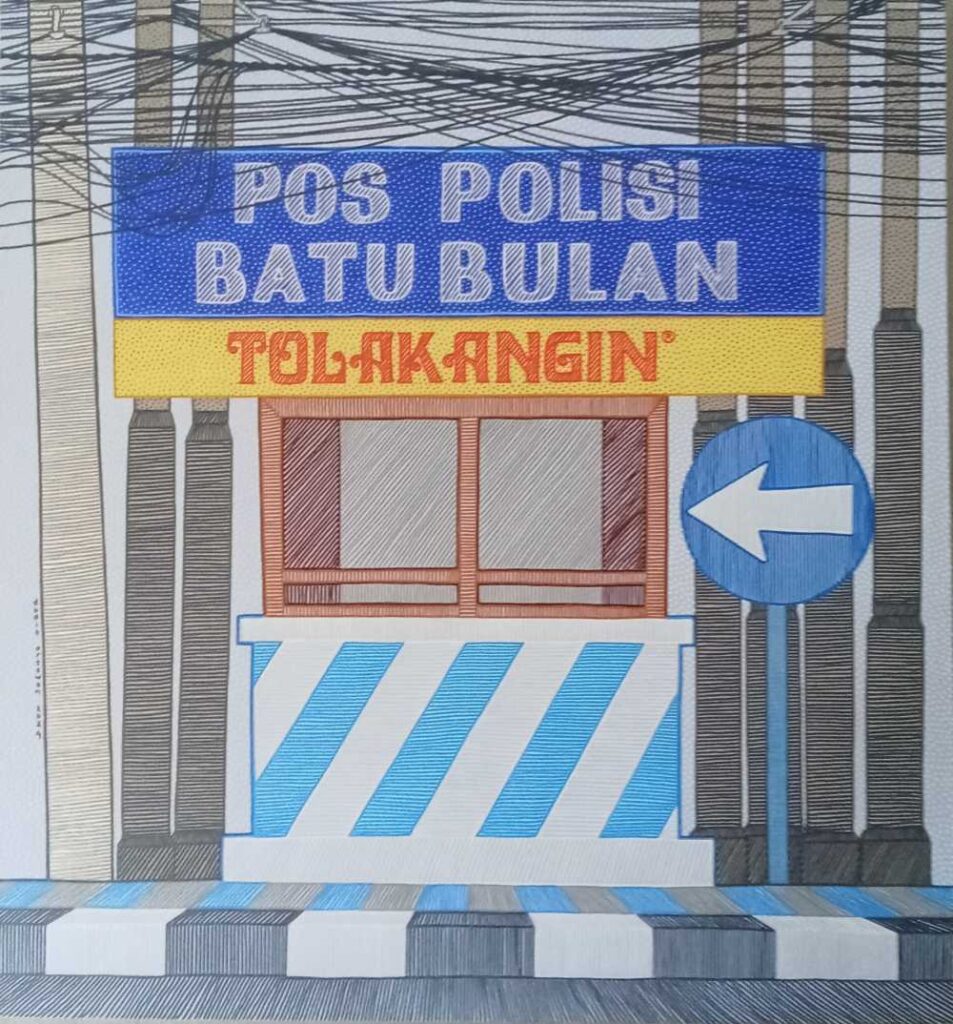
“Fetishism for mass-produced objects has affected our frame of thought and our perceptions about objects. The fetish attitude, however, reveals how contemporary society often becomes irrational simply because they want to have fun. And the world of capitalism gladly provides the fantasies that they attach to their products.”
Artawan studied fine arts at the Indonesian Art Institute (ISI) in Denpasar from 1997 to 2002. Between 2001 and 2010, he was a member of Seni Taxu Klinik, a provocative Balinese contemporary art collective known for challenging the establishment and making significant strides in Balinese painting.
Over the past two decades, Artawan has exhibited extensively throughout Indonesia, as well as in the United States, China, Italy, the Netherlands, Japan, Thailand and Malaysia, with solo presentations in Hong Kong, Singapore, Indonesia and Vietnam. In 2018, he earned the Bronze Award at the IWS Malaysia 1st International Watercolour Biennale. In 2023 he participated in NordArt, in Büdelsdorf, Germany, one of the largest contemporary art exhibitions in Europe.
Artists are especially sensitive to the nuances of their environments that are often overlooked by society. The artist’s DNA functions like a unique radar to the universe through which to express their individual and creative voice. Artawan has established himself as one of the most individual contemporary painters in Bali. Ironically, he rarely exhibits on the island. Exposure via the digital online art world has linked him with a growing global audience where he has achieved success. For the past five years, Artawan has been represented internationally by Vin Gallery in Vietnam.
Follow him on Instagram @doditartawan


